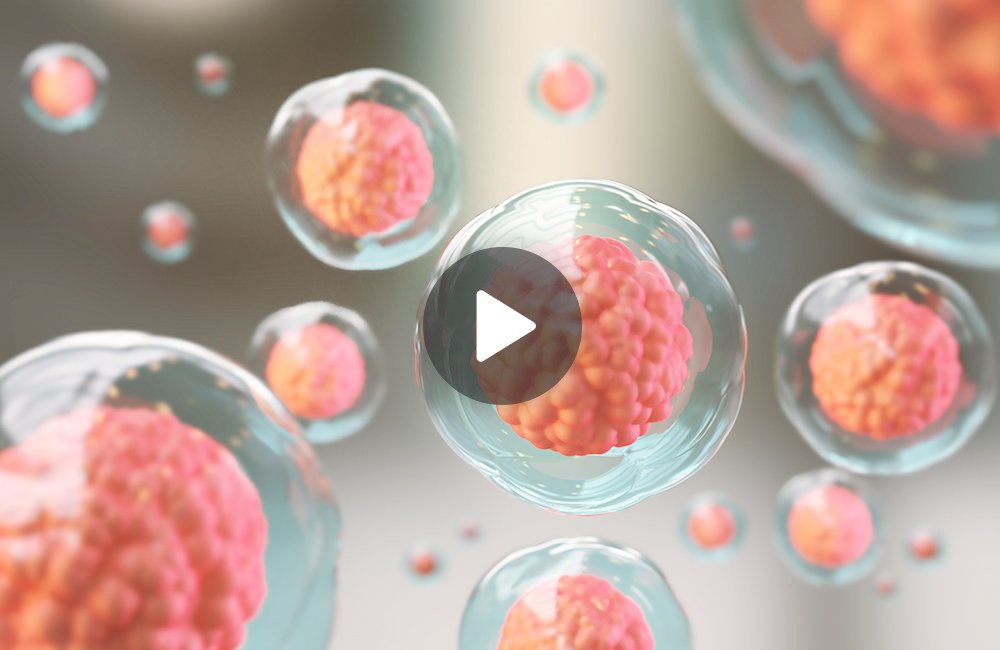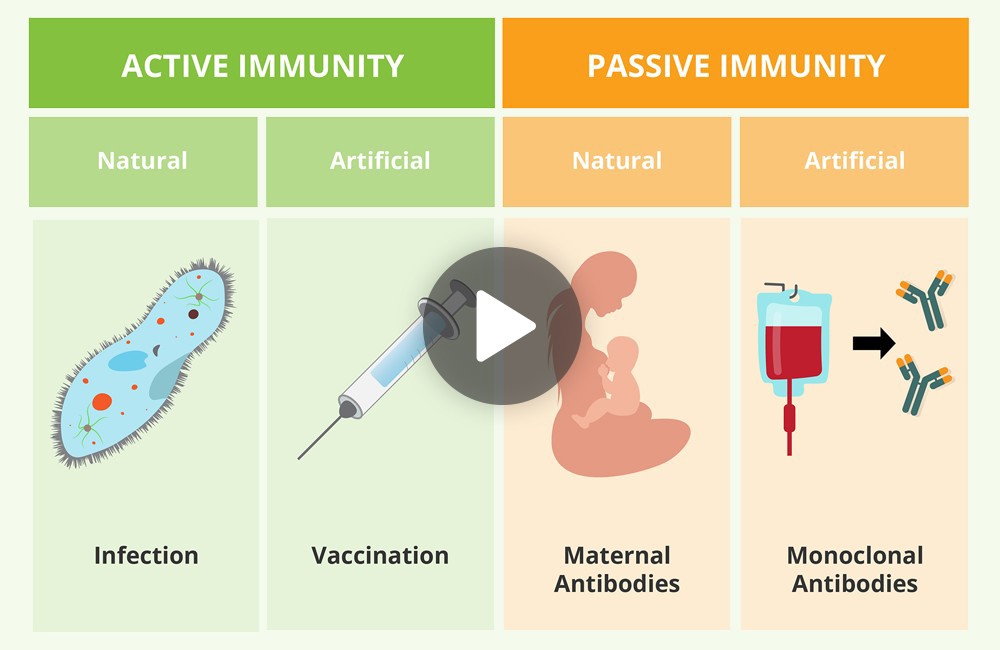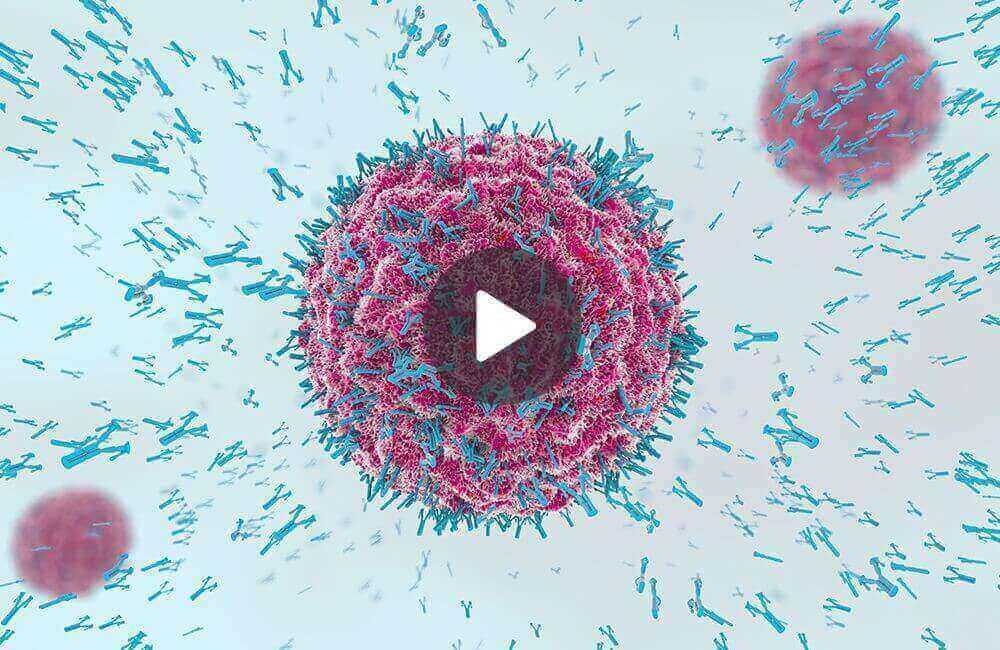Duration
4:15 minutes
Category
Stem cell therapy
Series
Immunity & aging
Objective
Educational
The immune system and aging
What you will learn
- What is immunity?
- What happens to your immune system as you age?
- How the age of the immune system influences our susceptibility to COVID-19
- Enhancing our antibody repertoire
- Pandemic flu and the risk of infections
In this lesson, we delve into the realm of immunity, examining the alterations that unfold within our immune system as we age, rendering us more susceptible to infections.
On a daily basis, we encounter various pathogens in our environment. Fortuitously, our immune system possesses the ability to recognize and neutralize these invaders before they can establish a foothold within our bodies. Hence, cultivating a robust immune system stands as a pivotal aspect of mounting effective defenses against infections.
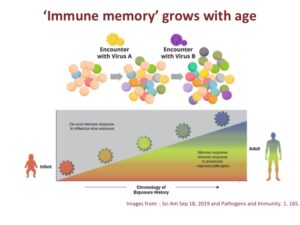
Humans are born with an underdeveloped immune system. As we age and encounter diverse pathogens, our immune memory, stored within antibodies, expands.
We commence with a modest reservoir of antibodies. When we face our initial viral infection, let’s say virus A, antibodies against this virus are produced. Subsequently, when we confront virus B, new antibodies specific to virus B are added to our repertoire. Hence, our immune system becomes equipped to identify both virus A and virus B.
This process repeats with each new pathogen encounter. The eventual outcome is clear: our immune systems strengthen over time due to continuous exposure to various environmental microbes. However, this seemingly flawless system encounters imperfections as we age. While the aging process entails heightened exposure to pathogens, the changes that accompany aging impair the immune system’s protective capacity.
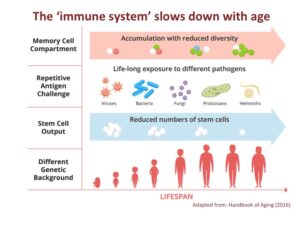
As we grow older, our immune memory erodes. The diversity of “memory” cells housing antibody information declines, leading to a loss of immune memory.
Furthermore, the number of stem cells diminishes with age. Hematopoietic stem cells found in bone marrow play a crucial role in replenishing the immune system. Consequently, our ability to rejuvenate immune cells dwindles as we age.
Lastly, age-related DNA modifications occur, impacting stem cell function. Research indicates that older stem cells lack the vigor of their younger counterparts in generating new cells.
Why does immune aging, or immune senescence, pose a concern? Insight into this question can be gleaned from the following case studies:
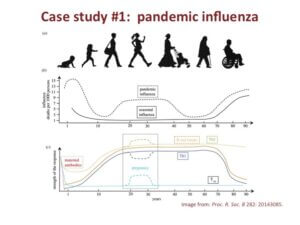
The first study, conducted during a pandemic influenza outbreak, unveiled a correlation between the number of influenza-related deaths and age. The very young and the elderly faced greater vulnerability and a higher likelihood of succumbing to the flu.
Notably, disease severity mirrored the robustness of the immune system’s response to infections with age. Infants with immature immune systems and the elderly with “aged” immune systems exhibited reduced ability to combat infections compared to younger individuals.
As a consequence, both seasonal and pandemic flus pose heightened danger to individuals within these specific age brackets.
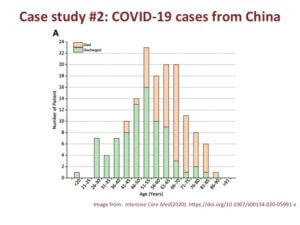
The second study delved into COVID-19 data from China. Analogous to the flu, COVID-19 infections were more fatal for individuals over the age of 65.
This trend persisted in data from British Columbia, where the elderly population displayed heightened susceptibility to COVID-19. This susceptibility could stem from factors such as underlying health conditions or a compromised immune system.
It’s imperative to comprehend that “immunosenescence,” or the aging of the immune system, substantially amplifies the risk and severity of infections as we age.
To delve deeper, explore our lesson dedicated to ongoing research aimed at addressing the predicament of the aging immune system.
More topics you might like
Continue your journey by selecting another topic.
What are newborn stem cells and why are they important?
3:45 minutes | Stem cell basics
What is immunity and how is it developed?
5:00 minutes | Stem cell therapy
Exploring ways to restore immunity
6:00 minutes | Stem cell therapy


